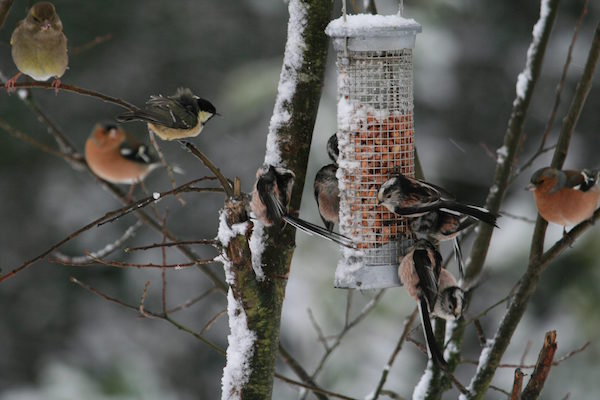Birdwatch Ireland has appealed to Donegal people to record the number of sick birds they see in their gardens this winter.
The appeal will be part of the group’s Irish Garden Bird Survey.
It follows a worrying concern after one of Ireland’s most iconic native birds, the Greenfinch, fell to their lowest numbers ever last winter.
The reason for the thousands of deaths was ‘finch trichomoniasis’ – a parasitic infection that kills infected birds.
In the 1990’s and early 2000’s Greenfinches were recorded in around 90% of Irish gardens each winter, but their numbers since have plummeted and fewer than 60% of gardens had Greenfinches last winter.
“The rapid decrease in Greenfinch numbers over the last 10 years has been extremely worrying, and last winter’s results suggest their decline hasn’t bottomed out yet,” said Brian Burke, who coordinates the survey for BirdWatch Ireland.
“Thousands of people all over the country take part in the Irish Garden Bird Survey every winter, so we’re hoping to use the public’s help to get a better handle on where and when this infection is hitting birds over the winter.
“As well as noting down the numbers of different bird species using their gardens each week, we need participants to tell us about any sick birds they see too.”
The Birdwatch Ireland spokesperson revealed that the Trichomonas gallinae parasite poses no threat whatsoever to humans, nor indeed to any other mammals, including cats, dogs, horses, cattle and sheep.
He added “It is strictly a bird disease and has been recorded in pigeon and bird of prey populations for a long time. It is even thought to have been a problem for the dinosaurs, from which modern bird ultimately evolved.
“It ‘jumped’ to finches in Britain in 2007 and was first recorded in Ireland the following year. Since then it has caused huge declines in Greenfinches in many parts of northern Europe.”
Brian Burke noted, “Finch species are the birds that are most likely to be affected by trichomoniasis. The symptoms that infected birds show include fluffed up feathers, difficulty swallowing food, sometimes with food stuck to their beaks, and an unusual reluctance to fly away when disturbed.
“Nobody could have predicted that this parasite would start to impact our finch populations, but thankfully we had the Irish Garden Bird Survey in place before it happened, so we have the data to show just exactly how hard some species have been hit. We get a great response to the survey every winter, and this time around people can give added value to their records by letting us know about any sick birds they see.
“Other finch species can be affected, most notably Chaffinches and Goldfinches, but their populations haven’t been impacted to the same degree. Chaffinch numbers did dip when the parasite first appeared, but their numbers have recovered,” according to Brian Burke. “Goldfinches have been doing well and trichomoniasis has done little to slow their growth. They’ve gone from being recorded in under 15% of gardens in the mid-1990’s to over 80% of gardens in recent years.”
The free survey, now in its 31st year, is open to everyone in Ireland who wishes to take part, and the number of participants continues to grow each year.
Tags:







